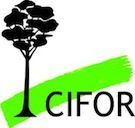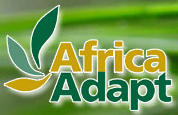Knowledge Partners (past and present)

weADAPT undertakes collaborations and projects with a number of Knowledge Partners, all designed to enrich and improve the utility of the weADAPT platform for a diverse audience of users. Below is a summary of some of these engagements, both past and present.
Find out more about the role of Knowledge Partners here.

Climate Knowledge Brokers (CKB) Group
The Climate Knowledge Brokers (CKB) Group is an emerging alliance of around 50 of the leading global, regional and national knowledge brokers specialising in climate and development information. It brings together a diverse set of information players, from international organisations to research institutes, NGOs and good practice networks, and covers the full breadth of climate related themes. The focus is on primarily online initiatives, and those that play an explicit knowledge brokerage role, rather than being simply institutional websites.
CKB has enabled weADAPT to foster highly innovative collaborations with platforms with specific strengths. For example, this has involved a partnership with a platform strong on climate science – the Climate Information Portal (CIP) – and another with a strong regional presence, AfricaAdapt.
Read more about the CKB Group in their network space
Read a recent Q&A where Dr Sukaina Bharwani, SEI, discuss weADAPTs experience with the CKB Group
Contact points for further information: Sukaina Bharwani (SEI) and Julia Barrott (SEI)

CIFOR
CIFOR member Emilia Pramova is the Editor of the Forests and Climate Change Initiative. In this role Emilia and CIFOR more broadly manage forestry related publishing and networks on weADAPT and contribute a great deal of the content to this initiative.
weADAPT and CIFOR have also undertaken a content sharing alliance through which articles on both platforms are shared. CIFOR projects such as COBAM and TroFCCA are published on weADAPT, and new articles relevant to forestry on weADAPT are automatically shared on the CIFOR Adaptation theme homepage and to the COBAM and TroFCCA project pages. You can see the content that is shared here: COBAM TroFCCA CIFOR Adapting to Climate Change CIFOR Projects in Climate Change Adaptation Contact points for further information: Emilia Pramova (CIFOR), Sukaina Bharwani (SEI)


IIED and IDS
IIED, IDS and weADAPT have been collaborating on the Global Initiative on Community-Based Adaptation (GICBA). GICBA was initiated in response to a growing interest in CBA approaches and strategies to climate change in developing countries. The project is not meant to take the place of or compete with other projects or activities but to enable sharing and synergies between efforts by all organisations (and individuals) working on community-based adaptation to climate change.
To enhance this joint approach and thinking, a series of International Conferences on CBA issues have been held in Bangladesh and Tanzania. GICBA has also created the Community Based Adaptation Layer showcasing ongoing CBA initiatives. Find out more about the Global Initiative on Community Base Adaptation. Contact points for further information: Corinne Schoch (IIED), Sukaina Bharwani (SEI)


CATIE and CIRAD
Since early 2012, the Ecosystem based Adaptation Initiative is growing with the support of CATIE and CIRAD as Knowledge Partners. Content related to the EcoAdapt project is contributing to this initiative, as well as the network of partners and Model Forests that is helping to expand the user-base in Latin America. The collaboration with these partners has also allowed weADAPT to improve its functionality to add content in Spanish and other languages. Contact points for further information: Carlos Manchego (CUSO), Tahia Devisscher (SEI)
Climate Information Portal (CIP)
weADAPT and the Climate Systems Analysis Group (CSAG) at the University of Cape Town are working together to share climate data and case studies on the Adaptation Layer. CIP has developed out of and replaced a tool that was part of weADAPT, the Climate Change Explorer tool. CIP has now developed separately from weADAPT, but the teams developing the portals are working together to integrate these two platforms to varying degrees, making it easier for users to navigate between them to draw on the different but complementary guidance, information and data that the platforms provide. User feedback is informing this integration through the CoLab project. Ultimately we are working towards a more fundamental coupling between the two, where both sets of resources can be used within the same platform. We are also starting to look at how links might be established with other existing platforms that provide climate change related data and/or information to increase the value and utility of each for their respective users. The goal of CIP is to enable users to explore possible climate futures for their location (or at least places nearby with comparable climates), compare these futures with climate experienced in the recent past, assess confidence in these projections, inform an assessment of vulnerability to climate change, and decide how this information affects adaptation choices. CIP provides users with access to observed climate data over the last few decades (the length of the record varies between stations) and climate change projections at the local level (for the middle and end of the 21st century). There are currently about 10,000 stations available across Africa and Asia and this is set to expand as new data becomes accessible. Find out more about CIP and weADAPT in the Using Climate Information initiative. Contact points for further information: Anna Taylor (SEI), Chris Jack (UCT), Sukaina Bharwani (SEI)

CIP and AfricaAdapt
This joint initiative between three knowledge brokers aims to advance the user demand-driven development, refinement and cross-linking between weADAPT, the Climate Information Portal (CIP) and AfricaAdapt – three well-established portals with large but different user bases.
The Stockholm Environment Institute (SEI Oxford), the Climate Systems Analysis Group (CSAG) at the University of Cape Town, and the AfricaAdapt partners (ENDA, FARA, ICPAC) are applying a user-lab approach to put portal users, developers and content providers face-to-face to address these issues. This is done during a 1-week long training session on vulnerability assessment and adaptation decision-making. This will provide insights on how the portals can be better linked which will in turn inform ongoing development of the portals until COP18. This will include integration of CIP climate station data from Africa and Asia within weADAPT and will be completed in October 2012.
As part of this project, stronger links are being created between weADAPT and AfricaAdapt by showcasing AfricaAdapt projects on the Adaptation Layer and making links between the themes on AfricaAdapt and the corresponding initiatives on weADAPT.Contact points for further information: Sukaina Bharwani (SEI), Chris Jack (UCT), Moussa Na Abou Mamouda (ENDA)

ENDA TM – Adaptation Toolkit
As part of the C3D+ project, ENDA and SEI are developing a Adaptation Toolkit that includes seven tools to conduct participatory vulnerability assessment and adaptation planning. The toolkit is tested in Gambia working in collaboration with local partners to help refine the tools and adapt them better to local conditions. One of the tools that ENDA is testing in partnership with SEI is the Climate Adaptation Options eXplorer (ADx). In July and August 2012 SEI trained ENDA on the use of this tool and in September 2012 ENDA will train the local partners on the implementation of the ADx. An example application of the ADx in Banjul, Gambia, can be found in this article
Contact points for further information: Gifty Ampomah (ENDA TM), Tahia Devisscher (SEI)

Reegle
weADAPT is providing feedback on the terms and relationships in the climate compatible development thesaurus developed by Reegle to improve the tagging and categorisation of climate adaptation documents by Reelge’s API (which is based this thesaurus). The aim of this collaboration is to embed the Reegle tagging system within weADAPT to enhance its semantic functionality and to provide weADAPT users with a richer set of climate adaptation keywords and relationships when writing and searching for documents.Contact points for further information: Florian Bauer (Reegle), Sukaina Bharwani (SEI)

Oxfam GB
This collaboration with Oxfam GB is a one-stop guide to climate change adaptation. This initiative aims to support Oxfam’s programme staff to integrate Climate Change Adaptation into their work. It provides a theoretical overview of Climate Change Adaptation; it will direct you to additional resources and practical tools; as well as show where different adaptation projects are being carried out throughout the world using the Google Earth Adaptation Layer.Contact points for further information: Alan Brouder (Oxfam), Sukaina Bharwani (SEI)
(0) Comments
There is no content